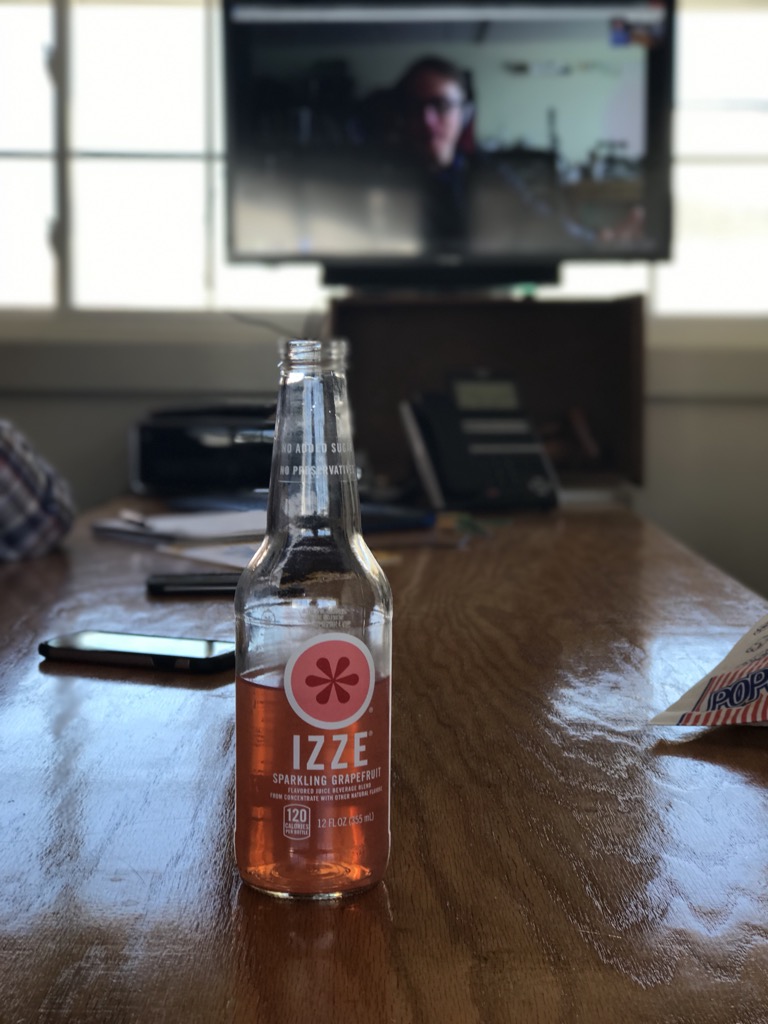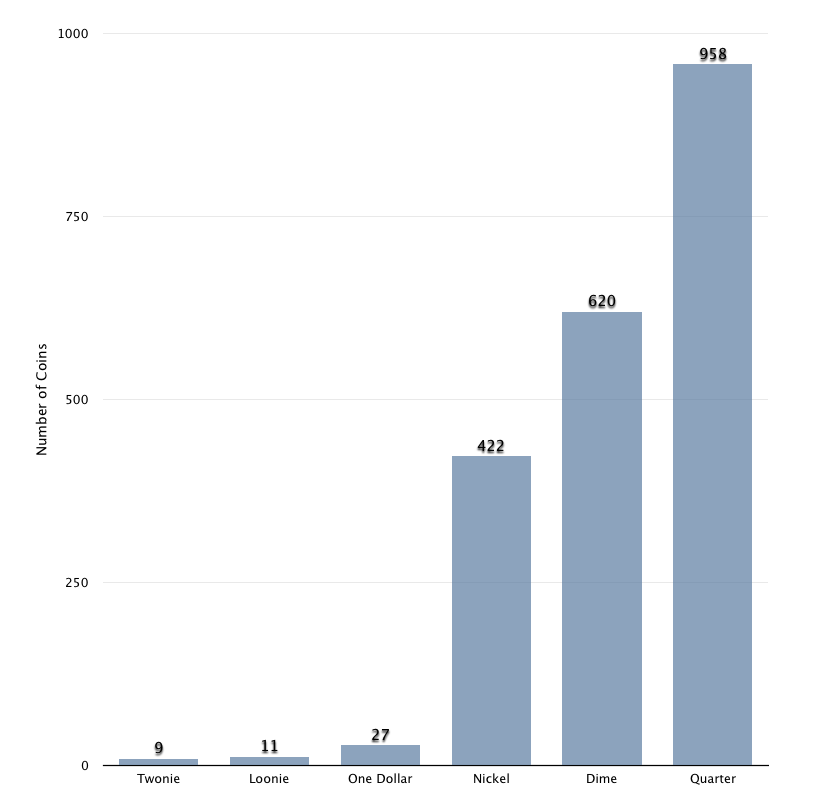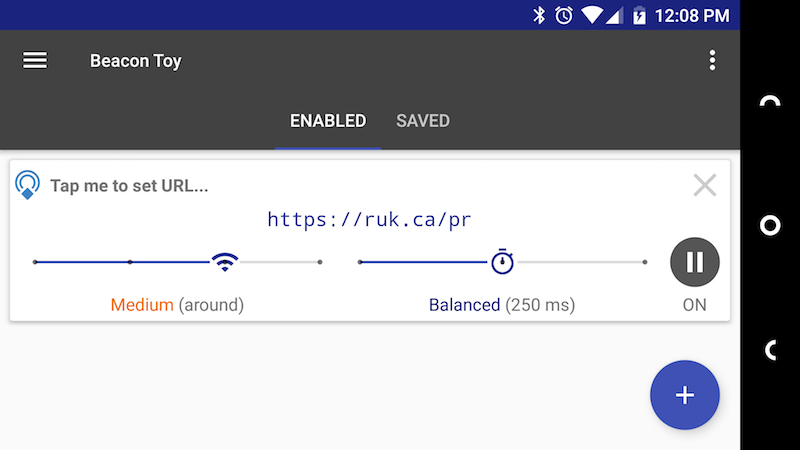Oliver and I started the tradition of father-and-son March Break vacations when he was 9 years old–shockingly, almost half-his-life ago.
I cannot recall what prompted the idea in the first place, and, in retrospect, the idea of heading to farthest Slovakia as a temporarily-single parent seems foolhardy: what if I’d turned the other way and Oliver had run off into the sewers?
But he didn’t, and so the template was set and it’s a tradition we’ve continued ever since, with only one exception, in 2015:
- 2009: Kosice, Vienna, Nuremberg, Paris, London
- 2010: Düsseldorf, Wolfsburg, Berlin, Mälmo, London
- 2011: Florida
- 2012: Florida
- 2013: Tokyo, Kyoto, Osaka
- 2014: Toronto
- 2016: Halifax
While getting to all of the above has involved different degrees of arduousness, it’s not really been the journey that’s switched “vacation mode” on, but rather the first supper out on the town of each trip.
The first time out, in 2009, it was a smoky Mediterranean second floor pizza-and-beer joint called Amir in downtown Kosice.
In 2010 we arrived so late in Düsseldorf that we missed supper altogether, so the suppertime portal to vacation had to wait until the next night where we ate more ćevapčići than I ever thought possible at the Lika Grill.
In 2013, we arrived in Tokyo late at night after an exhausting day of travel halfway around the world, so our first supper was at 7-11 (we made up for it the next night with an excellent sushi supper, the first of many).
This year, like last, we’re more modest in our ambitions, and have again come to Halifax for our vacation.
But the meal we had tonight, at Edna, ranks among the best we’ve had anywhere: it was simply fantastic on every level. Good food, great service, a comfortable room.
We’re here in Halifax until Wednesday, and plan to engage in all manner of father and son fun. It may not be Osaka, but that won’t keep us down.
Sarah Forrester Wendt has launched a Kickstarter campaign to open whole foods restaurant in downtown Charlottetown.
It would be a self-defeating move if I didn’t get behind that. So I did. Won’t you join me?
Jason Scott, who’s doing God’s work at the Internet Archive, writes with commendable detail about his efforts to preserve vintage Apple software in Thoughts on a Collection: Apple II Floppies in the Realm of the Now.
His piece reminded me of something that was once second nature, but which I’d long since forgotten:
Each floppy is 140k of data on each side, and in this case, all the floppies had been single-sided and clipped with an additional notch with a hole punch to allow the second side to be used as well.
There are innumerable other hacks involving floppies and cassettes and Commodore PET peek and poke secrets that once stuffed my brain but that have now FIFOed out.
Earlier in the year Jason wrote, also with commendable detail, about his work to preserve himself, in The Other Half and The Followup.
Jason, in writing with such grace about his medical adventures, joins an (unfortunately) long line of bloggers—Doc Searles and Om Malik, to name but two—who’ve done likewise by times. In doing so they do all of us a great service.
Every Friday afternoon I gather around the Skype with my remote colleagues at Yankee Publishing for a weekly review. Often, after the business is done, we use the opportunity to catch up on things not specifically work-related; for me, squirreled away in a bunker all by myself all week, this is invaluable workplace-social-time. Indeed, sort of saying hello to Sarah, Julia, Lloyd, Michelle and Alanna here at The Guild every day as I arrive, it is my workplace social life.
Today colleague Lou showed off his snazzy new iPhone 7 Plus by taking a photo of a soda bottle, using the phone’s portrait mode; as a result, you can see a fuzzy abstraction of me in the background. The effect is rather striking.

Claudia O’Doherty is the best thing about the Netflix series Love. Her comedic timing is brilliant; her deadpan style unique.
Witness this exchange, from season 2, episode 7 of the show, where O’Doherty’s character Bertie consoles Chris Witaske’s character Chris Czajkowski; I love how it’s both a conversation and a monologue.
How can you not love an actor about whom the headline O’Doherty hits pay dirt with soil erosion comedy appeared in her hometown newspaper.
Scribie is an audio transcription company with lofty aspirations:
At Scribie.com, our big vision is that eventually all audio/video content created by man will be available as text and the knowledge capital therein will be unlocked for the greater good of humankind. To further this vision we are offering our transcription service free of charge to podcasters. The files will be transcribed whenever we are able to schedule it in and we will send you the transcripts once it’s complete. We will also post the audio and transcript on our blog.
I decided to take them up on their offer of free podcast transcription, and the result is Live from the Formosa Tea House, Session Three, transcribed.
Buried deep inside the transcript you’ll find my architectural aspirations:
0:36:10 PR: Well, I’ve ran into a very similar thing. I was watching Charlie Rose last week and Philip Johnson, the architect had died, and they were talking a lot, they interviewed Frank Gary and they talked about Philip Johnson and I realized that deep in my heart of hearts I had always maintained the illusion that I will someday gonna be an architect. Because I had sort of toyed with the idea of coming out of high school…
0:36:29 DJ: Just like George from Seinfeld.
0:36:32 PR: I had toyed with the idea coming out of high school maybe I would go to architecture school but I didn’t, I went into a general arts program. But I’d always sort of thought deep in my mind that eventually I’d be done with this computer stuff and I’d go on to do the real thing and it would be architecture. And then just listening to Frank Gary talk and Philip Johnson talk and thinking about architecture and why I hadn’t done it yet, I realized that first of all I have none of the basic skills required to be an architect. Like I can’t think in three dimensions. I’m not particularly… I like buildings and I appreciate a good space but I have no idea how you would go about creating that. [chuckle] And I can’t deconstruct it and I’m interested in buildings but I’m not passionate about them. And then I realized with the few exceptions I don’t really like architects as people.
0:37:15 SG: You’re the worst architect ever. [chuckle]
0:37:17 PR: So I decided that maybe I should let that dream go now.
I’m happy to report that in the 12 years since I’ve managed to befriend an unusual number of architects, and find them to be delightful people. So I was wrong about that. But Steven was right: I’d be the worst architect ever.
As it happens, Oliver and I are off to Halifax for March Break next week, and we’ve plans to see the film The Sense of an Ending, playing at the Oxford; the plot, says Wikipedia, is:
When the past catches up with Tony, he reflects on the paths he and his friends have taken.
Reading a transcript of what amounted to a casual conversation among friends recorded more than a decade ago is similarly bracing.
We have a “change bucket” in our dining room where all the loose change in our household ends up. Over the weeks and months it gradually bulges toward overflowing, and, eventually, we must face up to its need to be emptied and turned into real money.
Today was that day.
There are two approaches we can take to this task: secure coin wrappers, spend a few hours sorting and rolling coins, then haul them up to the bank and deposit them.
Or we can take the change bucket out to the Atlantic Superstore, and use the “Coinstar” machine to magically–if expensively–turn them into paper money.

So this morning after dropping Oliver off at school, I hauled the change bucket into the Superstore, and gingerly ushered its contents into the Coinstar, When I was done, the screen gave me the total of $323.95 along with the breakdown by coin denomination:

Sharp-eyed math whizzes will note that the total of the coins does not, in fact, add up to $323.95: that’s the total minus the 11.8% Coinstar commission of $43.76.
The actual total coinage was $367.71. Like I said, all that labour-saving magic the Coinstar machine does is not cheap.
There were 2,047 coins in all; the distribution of denominations looks like this:

Quarters were the motherlode: they end up in the change bucket because, hey, they’re only worth 25 cents and they weigh down the pockets. But take 958 of them together, and all of a sudden you have $240!
What was most interesting to me, however, were the items in the change bucket that were not coins. Or that, at least, were not coins that the Coinstar would accept (it warns you that it might not accept and may not return non-acceptable coins, but it seems to have done a pretty good job). Here’s what the leavings looked like when the process was done:

What was left over was:
- 7 Canadian silver dollars: 4 “canoe” variants, 2 “Fathers of Confederation,” and a single “Jacques Cartier.”
- 1 Canadian 50 cent piece from 1934.
- 2 Canadian quarters, one with a bird from 2000 and one with a locomotive from 1999.
- 2 U.S. 50 cent pieces (“half dollars”), sporting JFK on one side and an eagle on the other.
- 1 Euro coin.
- 1 European 10 cent piece.
- 1 button with a letter “T” on it.
- 4 British pounds.
- 1 TTC subway token.
- 1 interesting paperclip.
- 1 piece of metal type: an exclamation point in Futura 30 pt.
- 1 participation pin from the PEI Science Fair.
These are the leavings of about a year’s worth of change-bucket-collection; it’s an interesting archaeological dig through our year, with a collection of unanswered questions left over. Like “wait, Canada has a 50 cent piece?!” and “how did we end up with 7 silver dollars in the change bucket?”
As much as Coinstar’s commission seems like highway robbery, I did emerge with $323 more in spendable paper money than I had before I walked in the door, and I saved myself the drudgery of sorting and rolling, and that’s worth something. Maybe not $43.76. But something.
When all was done, the Coinstar machine spit out a voucher:

I took the voucher to a cashier in one of the regular checkout lanes, and she cleaned out every last bill in her till to pay me what I was owed.
And now the cycle begins again. There will be 95 cents in the change bucket tonight as a start.
I’m pretty sure the person who purchased “API console” as a Google AdWords keyword didn’t count on the traffic for Google API Console searches.
![]()
(That’s not an actual ad; don’t click on it.)
I think I may have a new favorite page on the Internet: Diagnostic Sounds is a collection of sounds from John Muir’s How to Keep Your Volkswagen Alive VW Engine Sounds, a cassette companion to his seminal book.
John Muir is a hero of mine—you can tell by the number of times I’ve mentioned his book over the years—and if I ever invest in a vintage VW Beetle, it will be because of his book. And, now, his cassette.
Late last week I added an Eddystone beacon to the Reinventorium; today I added a beacon to myself.
So when I open the PhysicalWebScan app on my Mac, this is what I see:
![]()
The personal beacon runs on my phone, powered by the free Beacon Toy app for Android. Beacons can only hold a limited number of characters for an URL, so I created a Drupal redirect, https://ruk.ca/pr, that leads to my About Peter Rukavina page, and I set the redirect as the beacon URL. The result looks like this:

This means that should we be in proximity of each other, and you’ve got some sort of Physical Web scanning device in your pocket, you should be alerted that I’m nearby.
 I am
I am